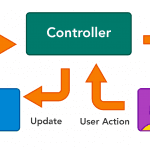The architecture, design, or pattern of any application decides the foundation of how that software is going to look like. Every business application's architecture depends on its needs, customer's demands, and more on the availability of tools, resources, and talent. Design models differ from business to business and therefore it becomes important to analyze which one would … [Read more...] about The Differences Between Three Major Application Architectures-MVC vs FLUX vs REDUX
custom software development
Reactive Architecture: Benefits & Use Cases
While the term reactive architecture has been around for a long time, only relatively recently has it been recognized by the industry and hit mainstream adoption. The goal of this article is to analyze what reactive really is and why to adopt it. Its core meaning has been formalized with the creation of the Reactive Manifesto2 in 2013, when Jonas Bonér collected some of the … [Read more...] about Reactive Architecture: Benefits & Use Cases
5 Major Software Architecture Patterns
In the Global Software Architecture Summit we were discussing software architecture patterns a lot and I decided to write an article about it, highlighting leading software architects insights. First of all, what are software architecture patterns? Architectural patterns are ways of capturing proven good design structures, so that they can be reused. Software architects have … [Read more...] about 5 Major Software Architecture Patterns
Interesting facts about software development: statistics
This year Apiumhub partnered up with codignsans and other software related companies like: clutch, gitkraken, Cooperpress, Level-up, Clockwise, VisionX, Code Climate, LingoHub, Usersnap and took part in a global software development research to find out how companies attract software developers, what are the most popular languages, what are the most frequent … [Read more...] about Interesting facts about software development: statistics
Event-Driven Architecture: Benefits & Models
Event-driven architecture (EDA) is a design pattern built around the production, detection, and reaction to events that take place in time. It is a design paradigm normalized for dynamic, asynchronous, process-oriented contexts. Event-driven architecture enables minimal coupling, which makes it a good option for modern, distributed application architectures. And in this … [Read more...] about Event-Driven Architecture: Benefits & Models







